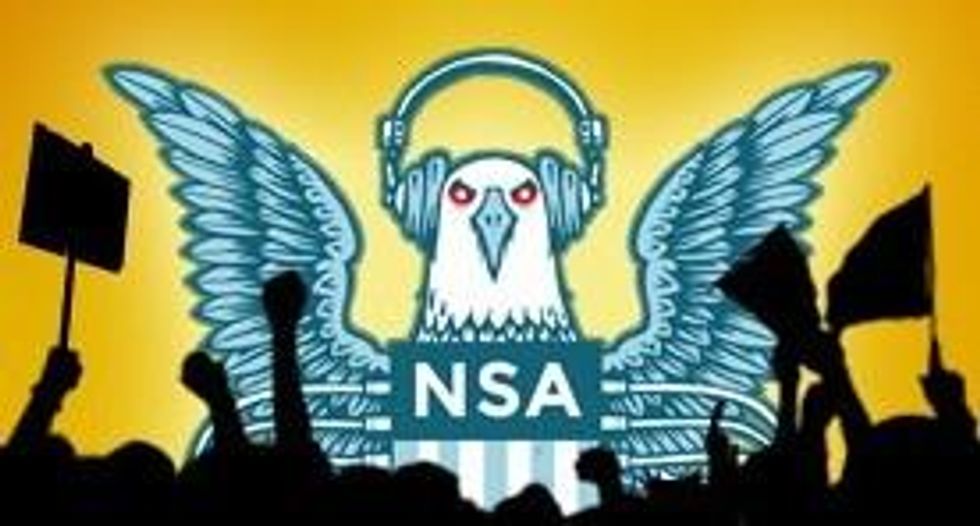A diverse coalition of groups represented by the Electronic Frontier Foundation (EFF) has filed suit against the NSA on Tuesday for its bulk, unconstitutional collection of Americans' phone records.
Among the 19 organizations making up the broad coalition represented in the case, First Unitarian Church of Los Angeles v. NSA, are Unitarian church groups, gun rights groups, Greenpeace, the National Organization for the Reform of Marijuana Laws, People for the American Way (PFAW) and TechFreedom.
Craig Aaron, President and CEO of Free Press, another organization behind the lawsuit, sees the diversity in the groups represented as "further evidence of the far-reaching impact of the government's spying program."
"The NSA's unchecked collection of Americans' telephone records, including the telephone records of organizations like PFAW, is a blatantly unconstitutional attack on our civil liberties," PFAW President Michael Keegan said in a statement.
The complaint asserts that the plaintiffs' First, Fourth and Fifth Amendment rights have been violated.
EFF explains that
At the heart of First Unitarian Church of Los Angeles v. NSA is the bulk telephone records collection program that was confirmed by last month's publication of an order from the Foreign Intelligence Surveillance Court (FISC). The Director of National Intelligence (DNI) further confirmed that this formerly secret document was legitimate, and part of a broader program to collect all major telecommunications customers' call histories. The order demands wholesale collection of every call made, the location of the phone, the time of the call, the duration of the call, and other "identifying information" for every phone and call for all customers of Verizon for a period of three months. Government officials further confirmed that this was just one of series of orders issued on a rolling basis since at least 2006.
"Who we call, how often we call them, and how long we speak shows the government what groups we belong to or associate with, which political issues concern us, and our religious affiliation," stated EFF Legal Director Cindy Cohn. "Exposing this information - especially in a massive, untargeted way over a long period of time - violates the Constitution and the basic First Amendment tests that have been in place for over 50 years."
Rev. Rick Hoyt of the First Unitarian Church of Los Angeles remembers well the "McCarthy hysteria" era when the groups and associations a person belonged to were under scrutiny, something his church resisted fiercely and instead supported blacklisted writers and actors.
His church also gave sanctuary in the 1980s to those fleeing civil wars in Central America.
"The principles of our faith often require our church to take bold stands on controversial issues," said Hoyt, but "church members and our neighbors who come to us for help should not fear that their participation in the church might have consequences for themselves or their families" because the NSA is surveilling their phone data.
As Ars Technica notes, the complaint "has two exhibits attached: one is the FISA court order leaked by former NSA contractor Edward Snowden and published in newspapers around the world. The other is the NSA memo that published after those leaks, acknowledging the existence of the surveillance programs."
"The sweeping collection of Americans' telephone records is a profoundly problematic infringement on fundamental constitutional rights," added Keegan.
Even if the lawsuit gets blocked, TechFreedom President Berin Szoka thinks some good will come of it, stating that "it will help to force a discussion in Washington about reforming the laws authorizing surveillance -- and covering up these constitutional violations from the American people."
EFF is suing the NSA in another lawsuit filed in 2008, Jewel v. NSA, on behalf of AT&T customers.
Read the First Unitarian Church of Los Angeles v. NSA complaint below:
__________________




